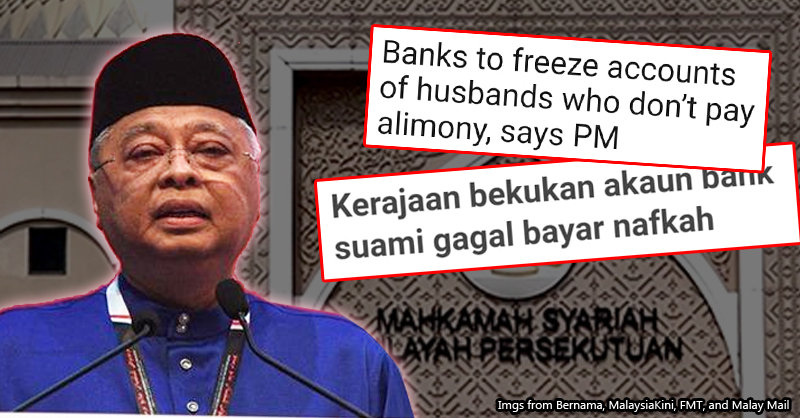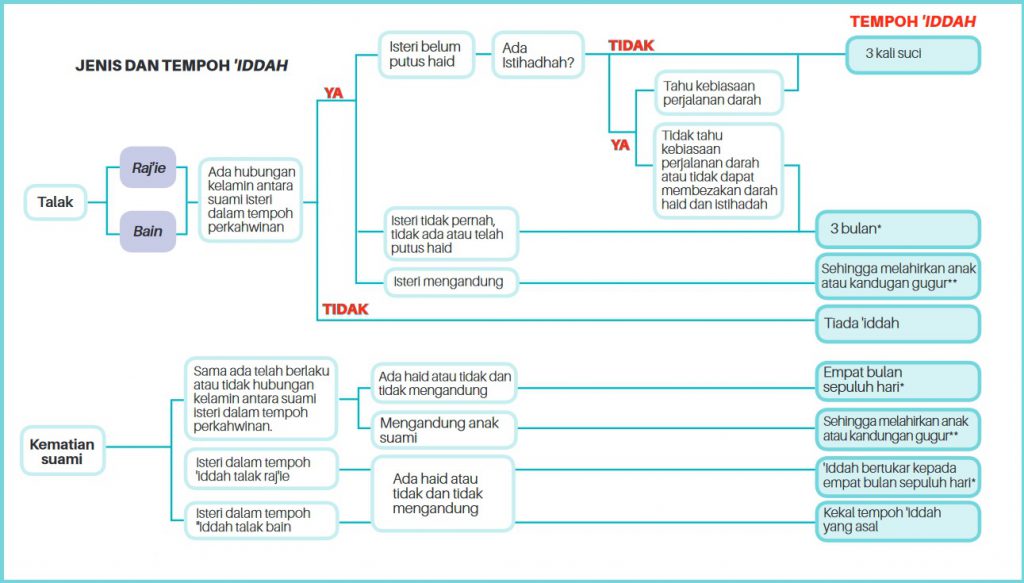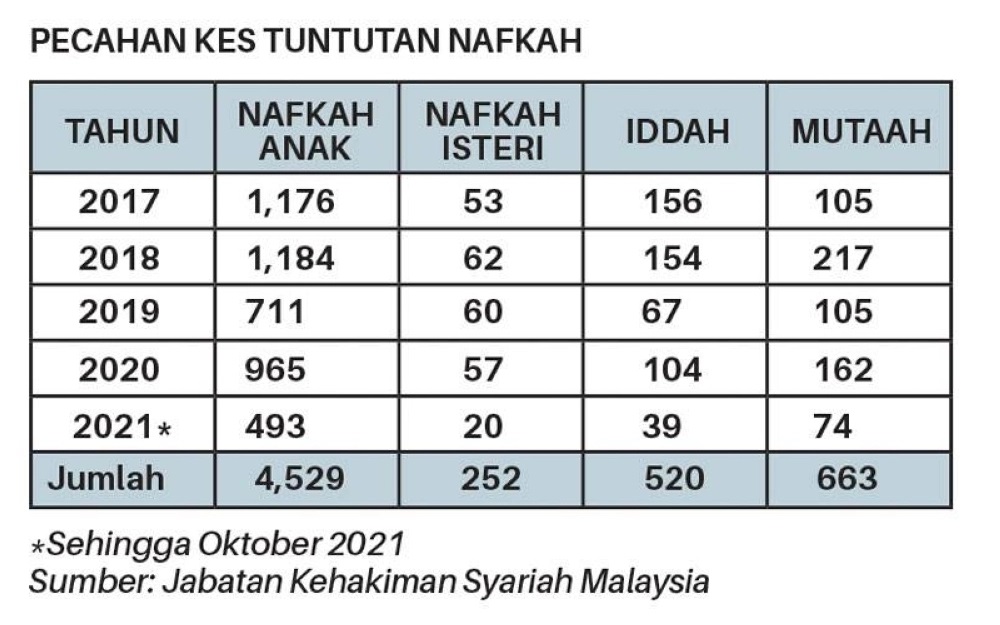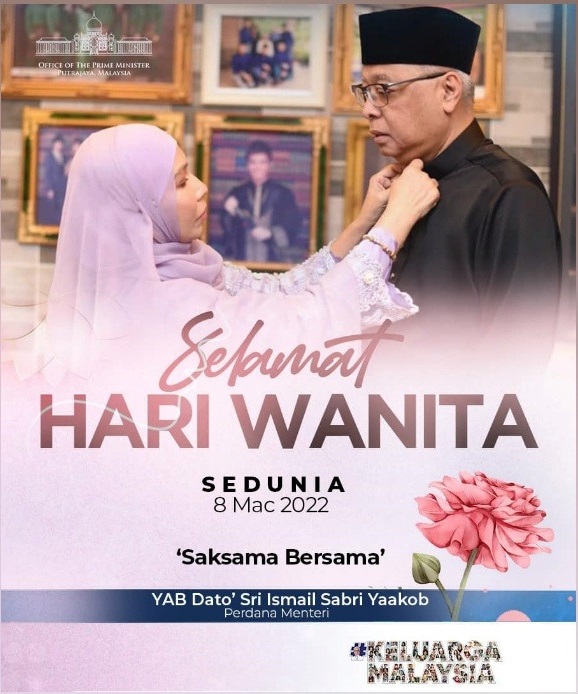Shariah courts can soon force men to pay nafkah to ex-wives.. by freezing bank accounts

- 487Shares
- Facebook456
- Twitter7
- LinkedIn6
- Email7
- WhatsApp11
Ah, marriage sure is nice. All these couples who’ve found their one true love, vowing to stay with each other forever and ever, till death do you part. Everything’s all sunshine and rainbows, but have you ever considered what happens after you… divorce?

We haven’t thought about that, to be honest, because none of us are married. But recently, Prime Minister Ismail Sabri dropped a somewhat interesting piece of news: husbands who refuse to pay nafkah or alimony to their ex-wives, even after being told to by the court, will have their bank accounts frozen.
“When a court case is won by a woman in nafkah claims, hardly will the husband pay and they go against the court’s order. So when we freeze (the account), if the court orders a payment of RM1,000 a month the bank will be ordered to pay it directly to the wife,” – Ismail Sabri, translated from Astro Awani.
Perhaps more interestingly, the announcement was made at the end of the UMNO general assembly, but let’s not talk about that today. Tired lah all these politics.
Anyway, unmarried and lonely as we are, we vaguely know that nafkah or alimony had something to do with money and marriages, but is the problem big enough that it warrants such a dramatic response? That’s what we aim to run through you today in this short and sweet article, starting with some basics…
Alimony is NOT short for Ali’s money

Unless, of course, your ex-husband is named Ali. Also known as maintenance, alimony is essentially money you may be asked to pay to or receive from your ex-spouse following a divorce, to ‘maintain’ the spouse until a certain time. In Malaysia, there are two kinds, for Muslim and non-Muslim marriages according to civil (under the Law Reform (Marriage and Divorce) Act 1976) and sharia law (each state’s enactments, or Act 303 for the Federal Territories), respectively.
We’ll be focusing on the Islamic kind of alimony today, called nafkah, since the announcement seem like it’s geared towards those. In some aspects, it’s similar to civil law (which you can read about here), but there are some payments that are more specific that needs to be addressed, like nafkah edah (or iddah) and mut’ah. Barring certain situations, all wives have a right to these payments, regardless of how much money they earn compared to the husband.
The edah in nafkah edah refers to a sort of cooldown period before a woman can remarry, so that the husband and wife can rethink their divorce and make their peace with it, and to avoid confusion over a child that might be conceived near that time. The length depends on several factors, like whether the wife is pregnant, still have regular periods, the kind of divorce they had, and whether the husband died, but generally it’s after three periods or around three months (or until the baby is born). The wife has a right to nafkah edah during this time.

During this edah period, the wife can claim for things like food, clothing, lodgings, or any other necessities such as medical expenses. However, the wife is disqualified from receiving nafkah edah if she is nusyuz, which means she refuses to comply to the husband’s wishes by, among other things, distancing herself from her husband, leaving his house against his wishes, or refusing to move houses with him without a good reason.
Mut’ah, on the other hand, is a compulsory gift given to a wife when she is divorced for no valid reason. As long as the marriage is consummated, the wife didn’t cause the divorce, and the divorce didn’t happen because the husband died, she can claim mut’ah, where the amount is decided by an agreement between the couple or the court if they can’t come to an agreement.
Besides mut’ah and nafkah edah, wives can also ask for arrears in nafkah from during the marriage. Unless the wife refuses, husbands in Islam are expected to give some nafkah in the form of spending money to the wife throughout the marriage, even if the wife earns money herself. If the husband fails to do that, it’s considered as a debt to the wife, and she may claim the debt after divorce. Child support is also considered as nafkah, and is also claimable.
So tl;dr, there are usually 4 types of nafkah a wife may claim:
- nafkah edah (alimony)
- mut’ah (gift)
- nafkah isteri (the arrears)
- nafkah anak (child support)

Now that we know the four basic types of claimable nafkah, we should note that…
Not paying nafkah is a huge issue in Malaysia
With the MCO in effect previously, the number of complaints against husbands not paying their nafkah had increased, but it’s a problem that stretches even before that. In the five years between 2017 and 2021, the Family Support Division (BSK) of the Malaysian Sharia Judiciary Department (JKSM) recorded 5,964 cases of claims for nafkah. Going back even further, a news report from 2017 reported that since 2010, 37 men had been sent to prison for refusing to pay.

According to Mohd Na’im, Chief Sharia Judge, most of the cases were only known to them after the divorce and the ex-wife makes a claim. Some of the reasons given by the husbands were that they can’t afford it due to their low incomes, and/or they have too many loans and/or people to support.
“Some husbands claim that there was an arrangement before marrying to shoulder the cost during their marriage together. For child support cases, the majority of excuses is that their former wives barred them from meeting their children or contacting them,” – Mohd Na’im, translated from Sinar Harian.
Still, despite the big number, Mohd Na’im acknowledges that this is only the claimed cases, and the number of husbands not paying nafkah to their wives may be bigger. He revealed that some wives decided to not make a claim due to them not being familiar with the procedure as well as not keeping receipts and other documents as proof since they didn’t anticipate a divorce.
With Ismail Sabri’s recent announcement, one might wonder…
Will this new initiative help these poor divorced women?

While it’s good news to divorced women, we should note that Ismail Sabri’s announcement wasn’t exactly new. Late last year, another initiative to solve this problem had already been implemented, by giving Sharia courts the power to execute something called the Hiwalah order. Through the amendment of several financial Acts, the Hiwalah order, which can be put out by any level of Sharia courts, enables financial institutions to forcefully transfer money from the bank accounts of ex-husbands who refuse to pay nafkah, and to some extent, bar the accounts.
It was reportedly gazetted on 10 Feb last year, but we’re not sure how the recent announcement was different from what’s already there. However, it seems that the idea was announced even before the UMNO assembly, during the launch of a Women’s Day event two weeks prior. And while the Hiwalah order was done through amendments of several acts, it seems that the recent announcement involves a new act entirely.
“The government through the Malaysian Sharia Judiciary Department also introduces the Monetary Financing Act where the bank can freeze the husband’s account on the court’s order. The bank is also allowed to make payments from the frozen husband’s account to the wife, if the wife had made claims regarding money in court,” – Ismail Sabri, translated from Utusan.
For now, it’s just an announcement, but Rina Harun, Women, Family and Community Development Minister, had stated that they expect for it to be implemented this year, after discussions with related ministries and agencies. But whether it will cause problems to ex-husbands in the future, compel more wronged women to claim their rights, or address the core reasons for why people divorce and refuse to pay their nafkah, will remain to be seen.
- 487Shares
- Facebook456
- Twitter7
- LinkedIn6
- Email7
- WhatsApp11
